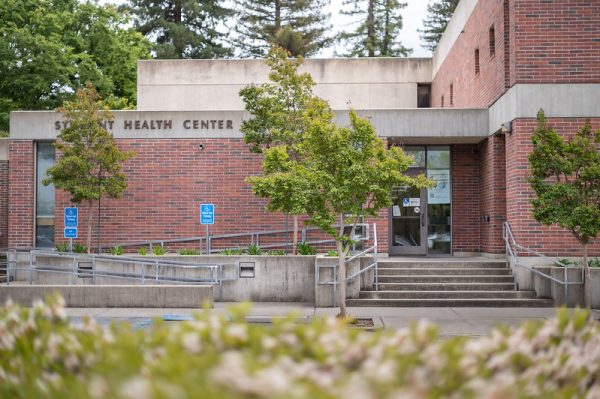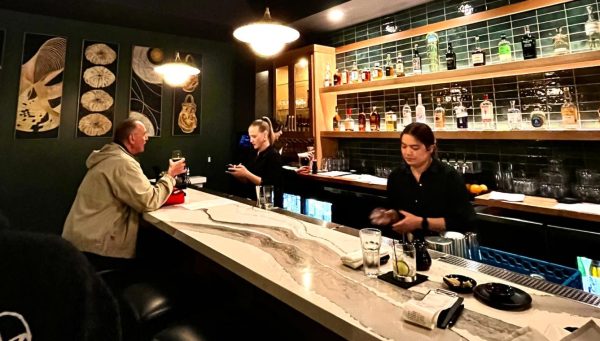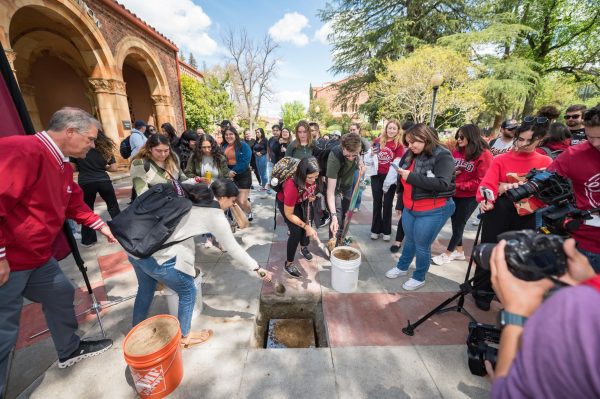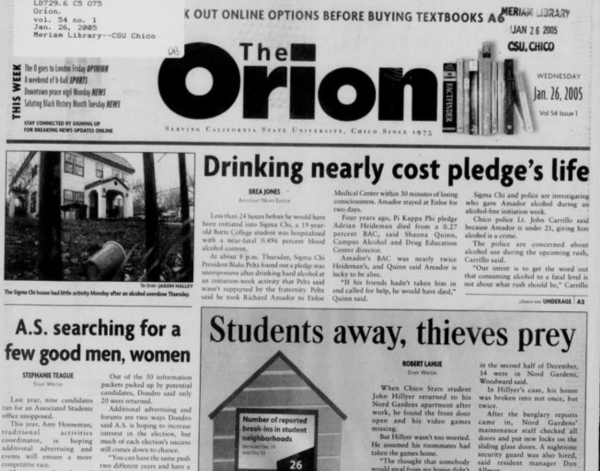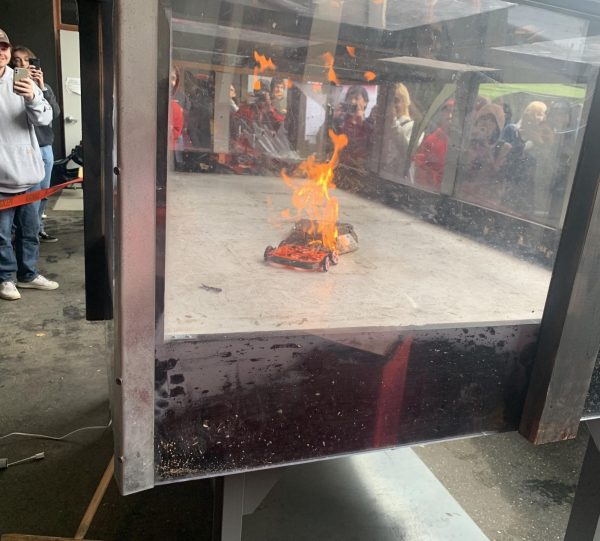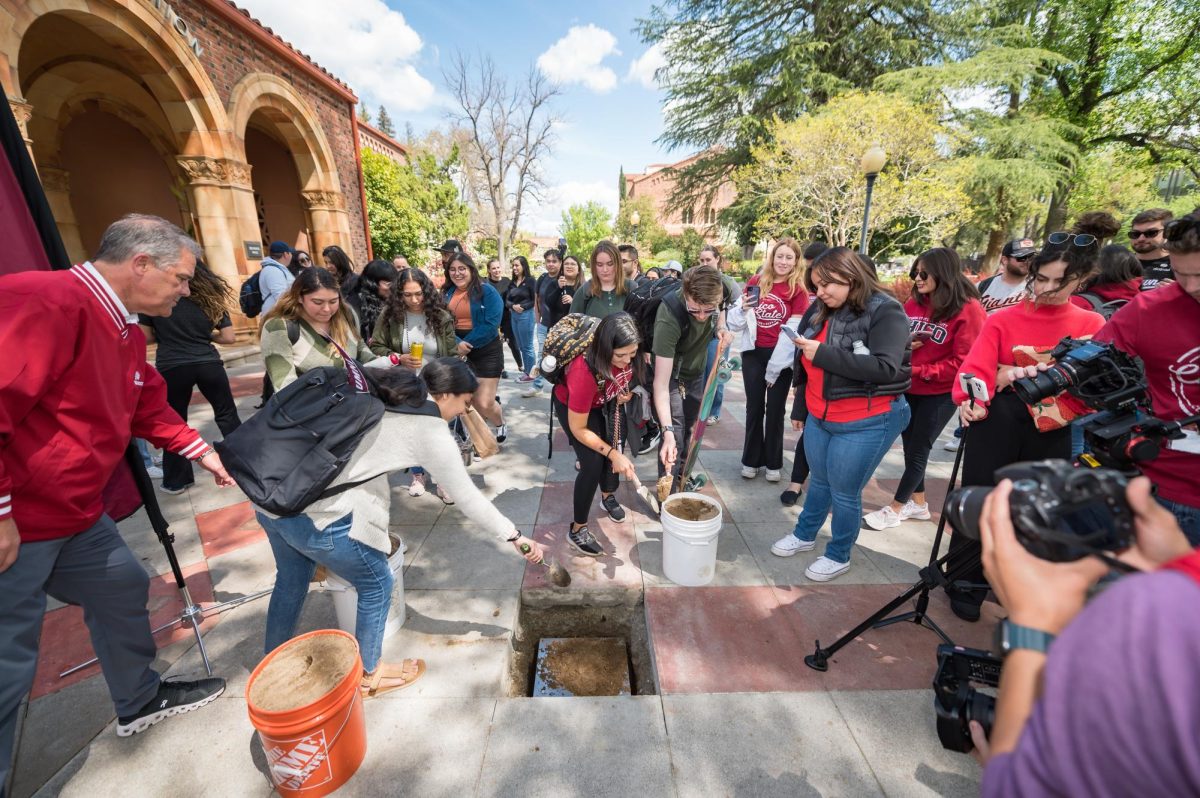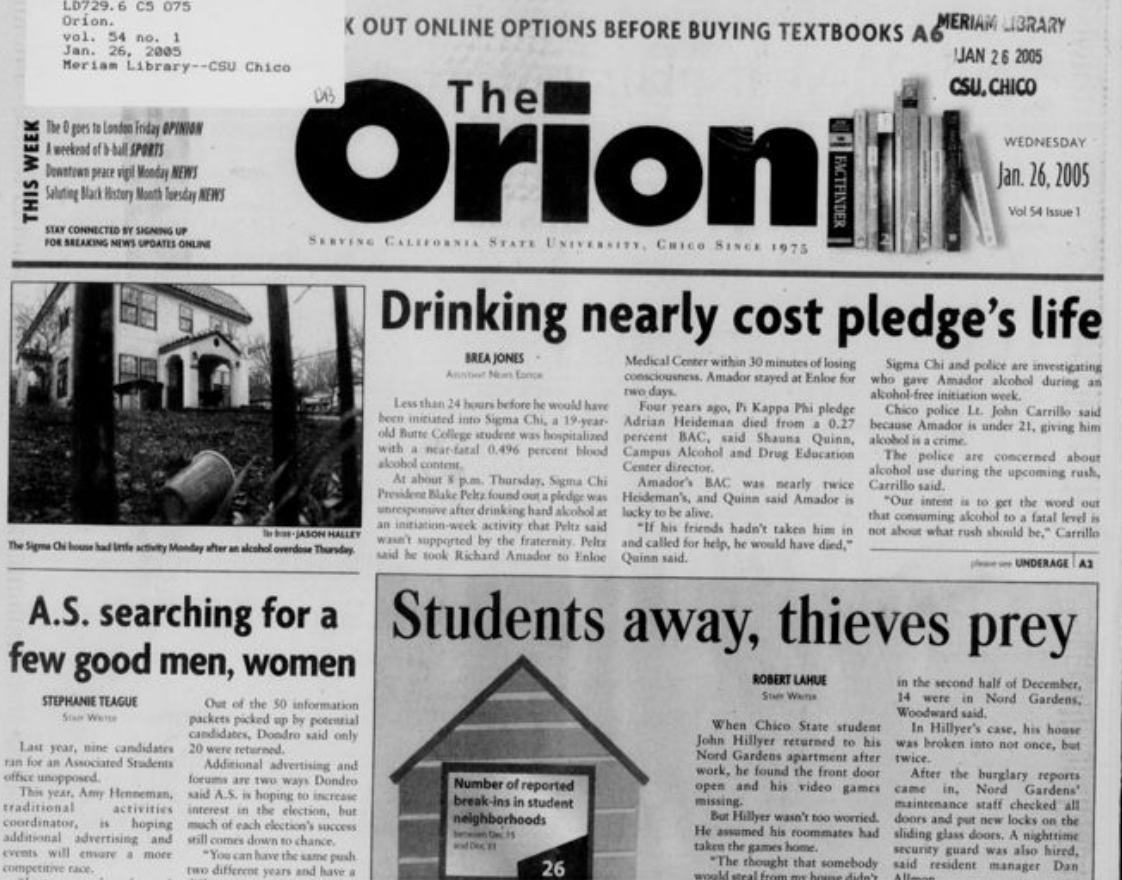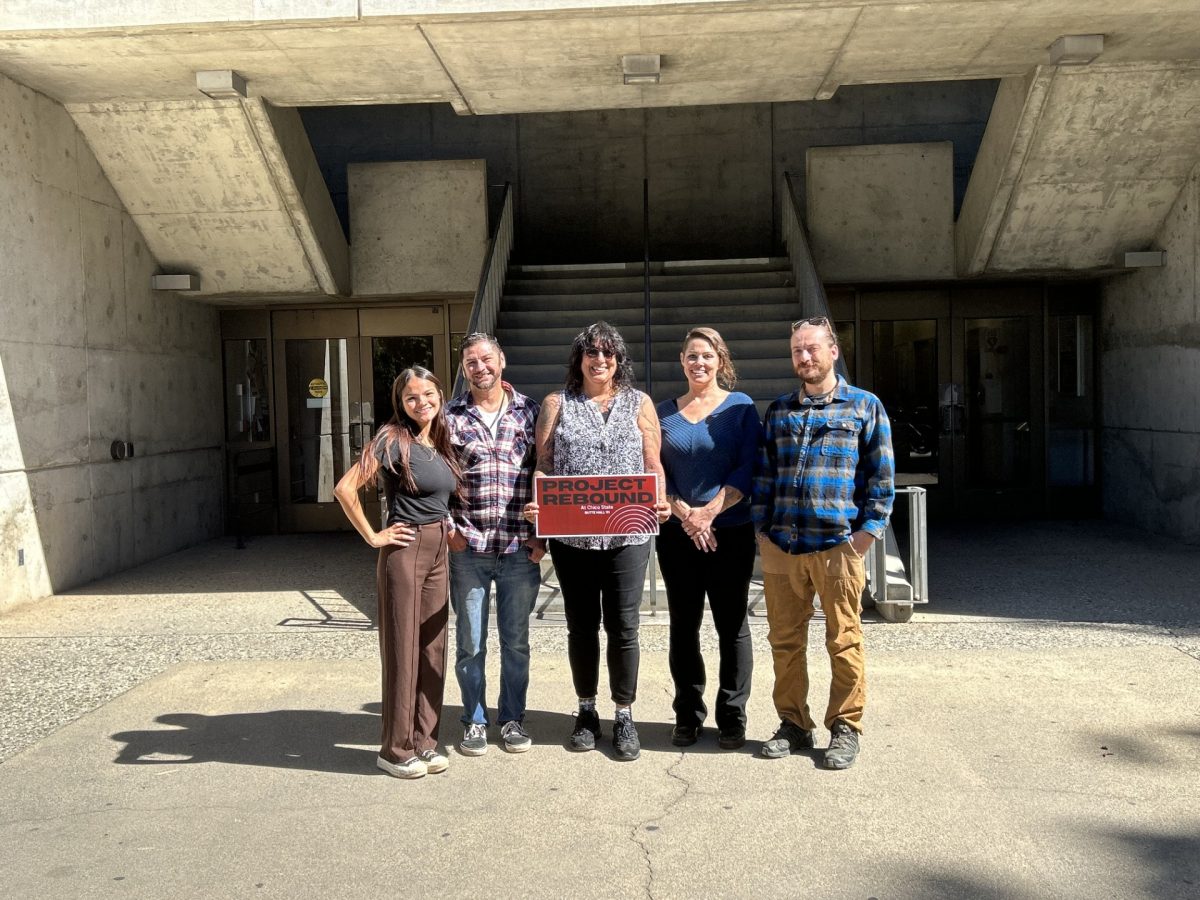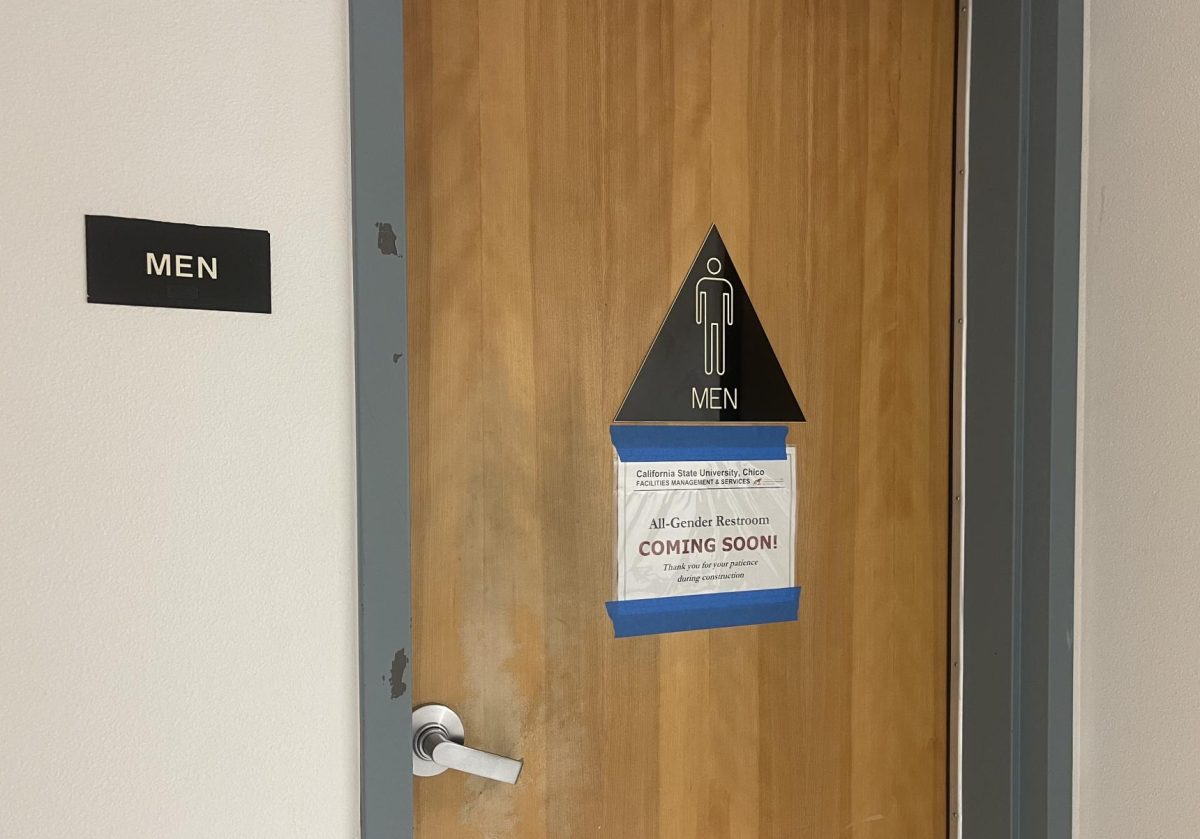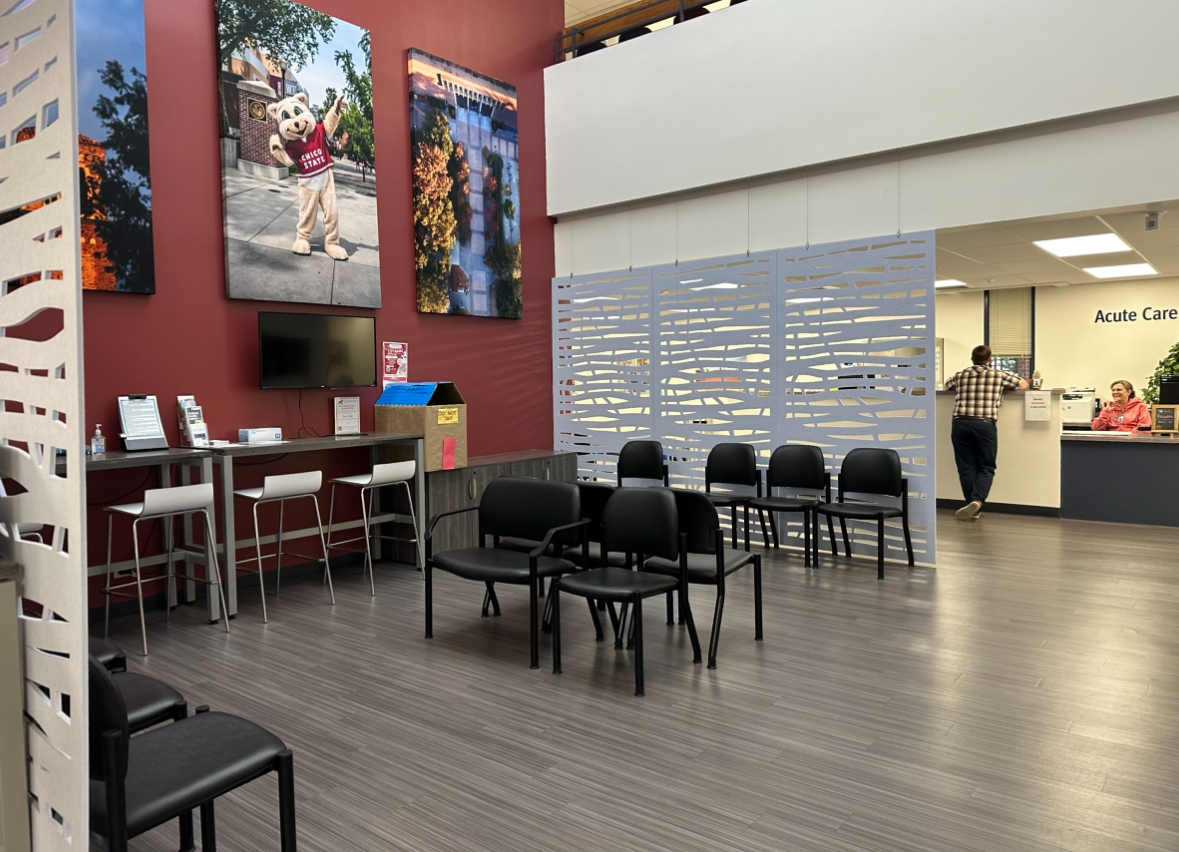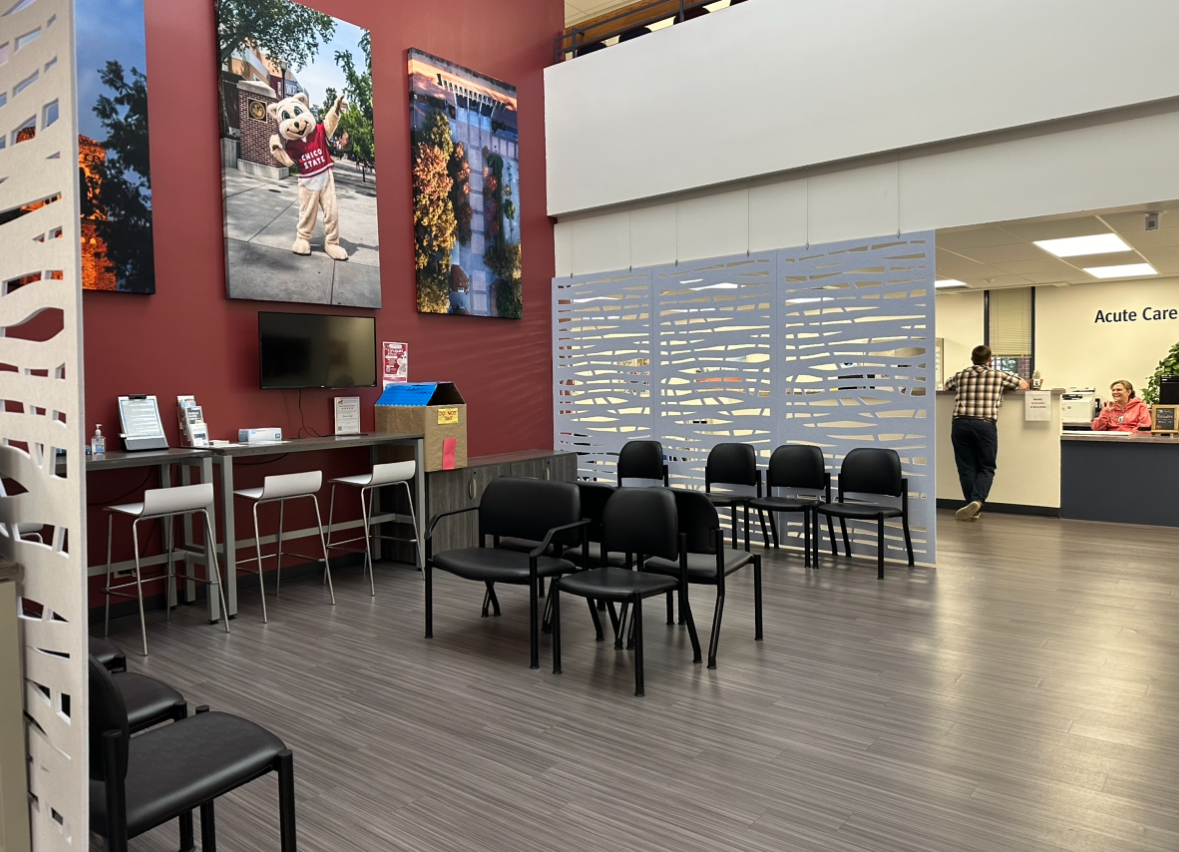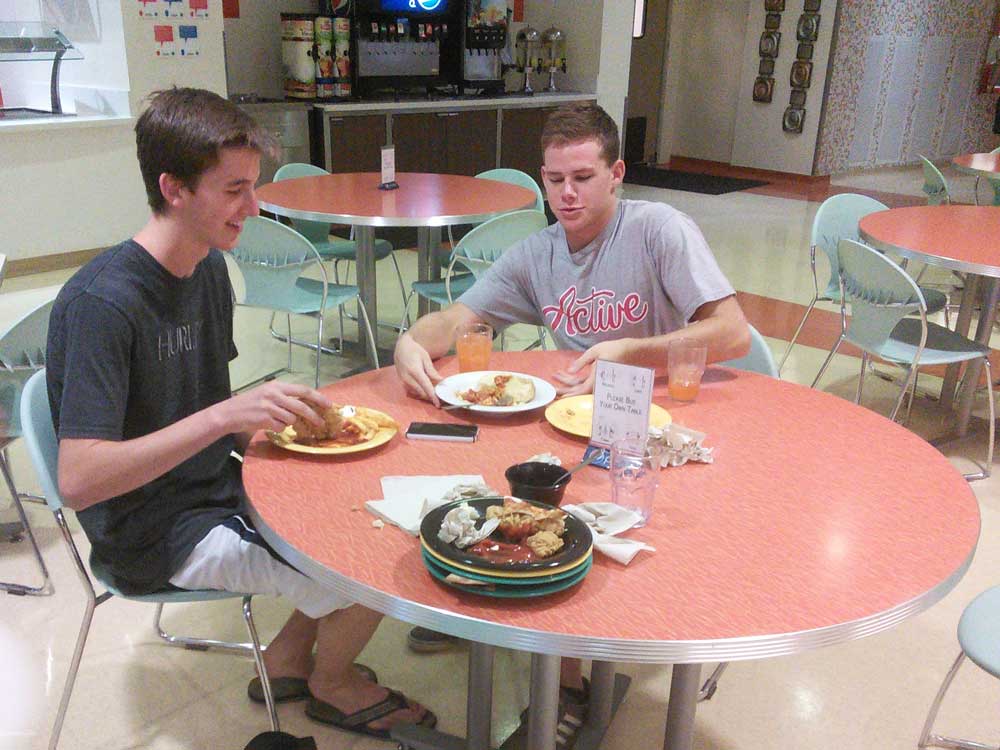
Routine semester audits of waste bins found throughout the dining facilities at Chico State show that the campus generates more than 140,000 pounds of compostable waste per school year.
Eli Goodsell, the Associated Students sustainability coordinator, said that the system as a whole adopted a goal to produce zero waste by 2020. Chico State A.S. set an internal goal for 2015.
Zero waste is defined as having 90 percent waste diversion, said George Rankin, the director of A.S. dining services.
Waste diversion is defined as any waste that is not sent to a landfill, said Goodsell.
“The last time we did a waste characterization (in December 2013), we were diverting 87 percent of all materials leaving Associated Student facilities,” said Goodsell.
Goodsell said A.S. does waste audits each semester. During these waste audits they weigh the amount of material generated over a 24-hour period. Waste is separated between compostable items, recycling and landfill.
Goodsell compiled a spreadsheet that contains the amount of compost in pounds generated from every dining facility on campus. Sutter Hall produced the highest amount of compostable items, at a total of 143,325 pounds. Those pounds are separated into two categories:
- Students not finishing what they eat: 72,000 pounds
- Food that is prepared but not eaten: 71,325 pounds
“We’re getting almost 8 ounces back per student (per meal),” said Rankin. “We consider that too much waste.”
Goodsell said the A.S. is concerned about the amount of food that goes uneaten.
“One thing we’re really going to work on this semester is: why is there half a pound of food waste per person,” said Goodsell. “Because of the way that’s set up with an all-you-can-eat (system), people grab pizza and a burger and then they only eat part of it because they’re only hungry for a little bit.”
Samuel Martiz, a first-year engineering major, said there should be a better system than all-you-can-eat at Sutter Hall.
“They should make an order system for it instead of just setting it out,” said Martiz. “Especially at this point of the day, people are starting to slow down coming in here.”
Goodsell said they are in the process of placing more composting and recycle bins in all buildings owned by the A.S. They also have a zero waste task force that meets regularly, looks at what’s being thrown into landfill trash cans, weighs everything and judging from that, looks for areas they can improve.
It all comes down to two things: the products they bring into the buildings and education to customers on how to dispose of things properly, Goodsell said.
“Most of the students who come to Chico State haven’t had composting in their local communities,” said Goodsell. “So if they have a cup in their hand, they don’t automatically think to put it in the compost bin and will automatically throw it in the trash.”
Michael Fritz can be reached at [email protected] or @themkfritz on Twitter.
